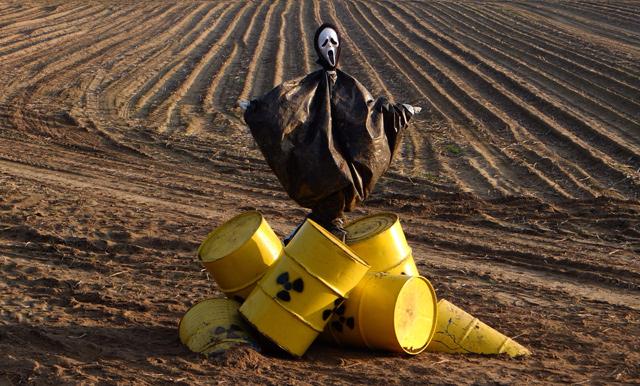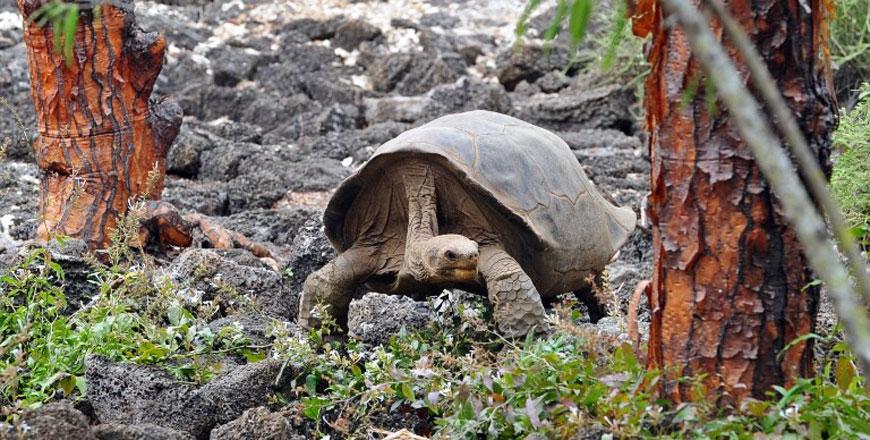You are here
Nations commit to reverse nature loss by 2030
By AFP - Sep 29,2020 - Last updated at Sep 29,2020

In this file photo taken on November 20, 2011, an anti-nuclear scarecrow stands next to mock barrels piled up in order to protest against the castor container tranport of nuclear waste to an interim storage facility in Gorleben, northern Germany, in Metzingen near Gorleben (AFP photo)
PARIS — Dozens of countries representing more than a quarter of global GDP on Monday released a fresh set of pledges for "urgent and immediate" action to halt nature loss and protect Earth's crucial biodiversity.
Ahead of the UN Summit on Biodiversity this week, more than 60 heads of state and government promised to slash air pollution, eliminate ocean plastic and transition to more sustainable food systems by 2030.
The pledge comes just two weeks after the UN's periodic review of existing global conservation plans found that nations were set to miss all 20 targets they set themselves back in 2010 to halt nature loss.
The WWF's biennial Living Planet Index, released separately this month, showed that wild populations of animals, birds, fish and plants had plummeted nearly 70 per cent since 1970.
“Two major reports published this month conclude we are utterly failing to protect the diversity of life on Earth,” said Johan Rockstrom, director of the Potsdam Institute for Climate Impact Research and co-chair of the international Earth Commission.
“We are failing to protect the resilience of our global commons. And we are failing to ensure a stable planet for future generations.”
The UN’s biodiversity panel IPBES last year warned that up to one million species faced extinction — many within decades — as human activity had “severely degraded” three-quarters of land on the planet.
Signatories to the Leaders’ Pledge for Nature said that nature loss was wreaking “irreversible harm” to life on Earth, aggravating inequality and contributing to climate change while increasing the future risk of pandemics such as COVID-19.
‘Health, economy, climate risk’
Nations including Germany, France, Britain and Mexico promised to develop an “ambitious” plan for ahead of next year’s UN COP15 Biodiversity Conference in Kunming, China.
This would include ending “harmful” subsidies for fossil fuel and boosting spending instead for restoring wild spaces such as forests and wetlands, and retooling global farming systems to reduce forest loss and food waste.
Currently one-third of food produced — around 1.3 billion tonnes — is lost or wasted each year.
Rich nations alone waste almost as much food (220 million tonnes) as the total production of Sub-Saharan Africa (230 million tonnes), according to the UN Environment Programme.
“Nature and biodiversity loss is so severe that it poses grave risks to our health, economy and livelihoods,” said WWF International Director General Marco Lambertini.
“We can’t ignore it any longer, and we must act decisively.”
Campaigners are hoping for a Paris-style agreement for protecting nature to be adopted next year, with nations agreeing a global framework to halt and reverse biodiversity loss.
Related Articles
AMMAN — Amidst the COVID pandemic, the annual Earth Hour event introduces the first-ever “Virtual Spotlight”, putting nature at the centre o
PARIS — Up to 1 million species face extinction due to human influence, according to a draft UN report obtained by AFP that painstakingly ca
NAIROBI — Delegates from almost 200 nations have made little progress towards hammering out a blueprint for a global pact to protect nature












